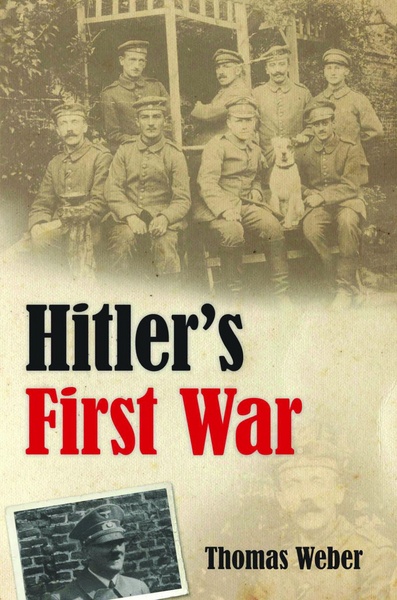The Battle of Fromelles fought during World War One has earned a reputation as the darkest day in Australian military history tainted not only by the high casualty rate but reported acts of atrocity at the hands of the enemy.
But as the 95th anniversary of the battle approaches, a University of Aberdeen historian has cast doubt upon the extent to which German soldiers were responsible for acts of brutality.
Dr Thomas Weber examined the battle in detail in the course of researching his book Hitler’s First War, which discredits the Nazi leader’s First World War record.
Dr Weber argues that while individual soldiers from both sides broke the laws of ‘civilised’ warfare, the brutalisation of those who fought in the battle, which claimed 5,500 Australian casualties in a single day, was not as widespread as is commonly perceived.
The Battle of Fromelles, fought from July 19-20 1916, was a combined operation between English troops and the Australian Imperial Force (AIF) and it was the first occasion that the AIF saw action on the Western Front.
After a night and a day of fighting, 1,500 English and 5,533 Australian soldiers were killed, wounded or taken prisoner – the highest losses in a single day in Australia’s military history.
It ended in a resounding victory for the men of the List Regiment, the Bavarian unit to which Hitler belonged, and after the battle some Australian soldiers stated that they had seen Bavarian soldiers shooting injured Australians.
According to Australian reports, Bavarian soldiers let an Australian soldier who had been blinded stumble in circles before they shot him.
But Dr Weber argues that the commonly held perception of the battle is based almost entirely on Australian evidence.
In the course of his research for Hitler’s First War, he examined in detail the records of the List Regiment, uncovering many documents which have never been tapped as a source of evidence for Hitler’s war record.
He found that a report by 1st Battalion of the List Regiment which agrees that the laws of ‘civilized’ warfare had been broken. However, the villains of the report were Australian, not Bavarian.
The report states: ‘Under these conditions the recovery of the large number of prisoners has become extremely dangerous for us. The number of our losses incurred while undertaking this task is a result of the perfidiousness of the enemy, as they first feign surrender and then resume combat when we come close to them.’
Dr Weber said that although such incidents seem to have occurred on both sides, this does not reflect overall relations between the opposing soldiers.
“The evidence I have found suggests that while atrocities did take place, this was not a widespread or universal phenomenon,” he added.
“Acts of decency and of treacherous violence coexisted and were sometimes combined. One such incident occurred at the end of the Battle of Fromelles, when two Bavarian soldiers carried an injured Australian soldier back to the Australian trenches, saluted the injured soldier, and then, as they walked back towards German lines, were shot by other Australians who were probably oblivious to what had happened.
“However it seems that acts of decency in the aftermath of battle were more common than acts of brutality. Prisoners of War later recorded that on arrest, they were not treated at all brutally.”
In the course of his research, Dr Weber uncovered that so readily forthcoming had been the help afforded to injured Australian and English troops by the Bavarian soldiers, that the commander of the List Regiment was compelled to issue the order that the men of Hitler’s regiment were only supposed to help their Anglo-Saxon counterparts after their own injured soldiers had been taken care of.
He also felt the need to remind them that captured soldiers, rather than the men of the List Regiment, were supposed to carry injured Australian and English soldiers to the rear.
Dr Weber said: “Less than two weeks after the battle 20 to 30 Australian soldiers who faced the List regiment climbed up the parapet of their trenches and tried to fraternise.
“This demonstrates that the brutalisation of the troops did not occur on the widespread basis commonly perceived and that after the battle and after the adrenaline had gone, remorse tended to set in.
“The high death toll from the Battle of Fromelles means that it continues to be remembered as the darkest day in Australian military history but in the course of my research I have found that there were also many acts of humanity on both sides.
“As the 95th anniversary of the battle approaches it is important that we honour not only those who died but those on both sides who, despite the brutality of the environment in which they found themselves, behaved with compassion towards enemy soldiers. It is time to reflect on the sacrifices made at Fromelles by Australians, Englishmen, and Bavarians alike.”
ENDS


